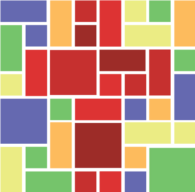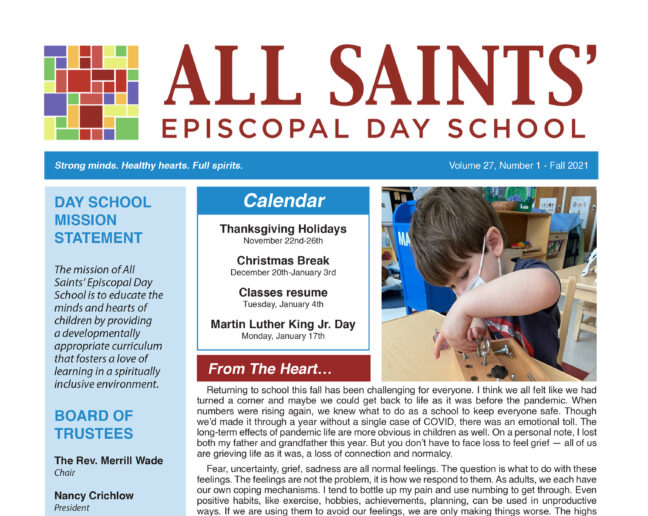Returning to school this fall has been challenging for everyone. I think we all felt like we had turned a corner and maybe we could get back to life as it was before the pandemic. When numbers were rising again, we knew what to do as a school to keep everyone safe. Though we’d made it through a year without a single case of COVID, there was an emotional toll. The long-term effects of pandemic life are more obvious in children as well. On a personal note, I lost both my father and grandfather this year. But you don’t have to face loss to feel grief — all of us are grieving life as it was, a loss of connection and normalcy.
Fear, uncertainty, grief, sadness are all normal feelings. The question is what to do with these feelings. The feelings are not the problem, it is how we respond to them. As adults, we each have our own coping mechanisms. I tend to bottle up my pain and use numbing to get through. Even positive habits, like exercise, hobbies, achievements, planning, can be used in unproductive ways. If we are using them to avoid our feelings, we are only making things worse. The highs and the lows of life become muted — at some point, we will have to face our feelings.
I recently had the wonderful opportunity to attend Brene Brown’s “Dare to Lead” training. It was a life-changing experience, and I was motivated to recommit to self-compassion and self-care. I want to live into my values and be my best self. We can’t do that from an empty cup. We can’t give others what we can’t give ourselves. We hear lots about self-care and self- compassion these days, but what is it? Is having a glass of wine and taking a bubble bath self- care? If it helps me to be vulnerable, embrace my feelings and move through them, it can be. If those internal voices continue to be judgmental and harsh, I need to embrace self-compassion. Kristin Neff writes about three elements of self-compassion:
• Self-Kindness vs. Self Judgement – learning to recognize that we are all imperfect and face difficulties; being gentle with ourselves when life doesn’t meet our expectations
• Common Humanity vs. Isolation – recognizing pain, suffering, and feeling “not enough” are things we all go through, rather than feeling that it’s “just me,” alone
• Mindfulness vs. Over Identification – observing thoughts and feeling without judging, suppressing, or denying them while at the same time not being so wrapped up in our feelings that we are caught up in negative reactivity
My prayer for all of us is that we can find ways to truly practice self-care. For myself, I know that means slowing down, breathing, and taking time for things like meditation, connecting to nature, and yoga. These are the things that allow me the space for reflecting, letting go, and true self-compassion. I am wishing you well and hoping that you will make the time to know what self-care and self-compassion mean for you, and give yourself permission to practice them, so you can be your best and serve those around you, including the children in your life.
Gigi Khalsa ,
Head

